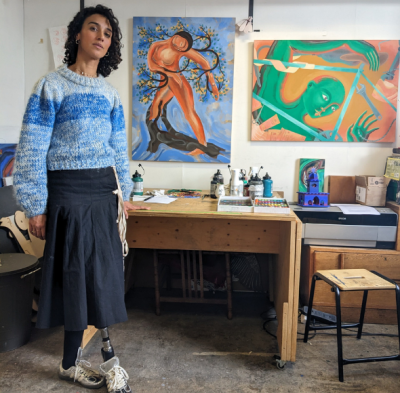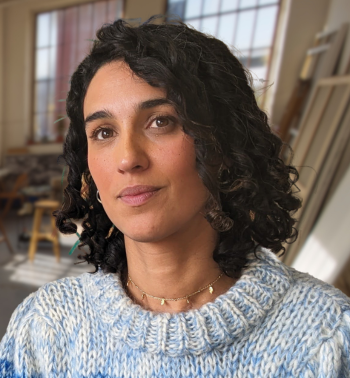26 November 2024
At a KHP Primary Care webinar, to mark UK Disability History Month, Dr Nedah Darabi shed light on the barriers that people living with disability often face when accessing healthcare services. In a follow-up interview she discussed the common misconceptions within health services and shares practical ways that healthcare professionals can begin to address these issues.
Can you tell me a little bit about yourself, your role, and how you came to work for the NHS?
My name is Nedah and I am a GP and educator in south east London; I was drawn to working in the NHS because I have aways been passionate about improving health and addressing inequalities. Then, when I acquired a disability three years ago, I was already working in the NHS, and I found my personal experiences of healthcare as a disabled person were an awakening to the many barriers faced by disabled people. I also discovered a widespread lack of awareness among health professionals. It gave me a very different perspective on issues I hadn't fully considered before. Now I'm interested in thinking about how we can change some of the negative attitudes towards disability and reduce some of the inequalities that disabled people face.
What are the most common misconceptions that those living with disability encounter?
Evidence shows that healthcare professionals often rate disabled peoples’ quality of life as poor. However, studies indicate that disabled people rate their quality of life comparably to non-disabled people. In my experience too many people view disability as a negative thing, and it can be as if people think they might embarrass you by asking you something. I think that is in itself a bias, because I don't see my impairment as this tragic thing. What I struggle with is lack of accessibility and when people make assumptions about me. Assuming disabled people have a lower quality of life can lead to harmful health outcomes. For example, disabled people might not offered some treatments because of this biased assumption.
Related to this are the low expectations that are often afforded to disabled people. When it is assumed that we cannot work, maintain good health, or participate in education and social activities, disabled people are denied equal opportunities to succeed. However, with proper accessibility and support, disabled people can achieve their goals.
Another common misconception is that all disabled people want to be fixed. Many disabled people do not perceive their impairment as a problem or pathology - but rather view exclusion, societal, and attitudinal barriers as the true issue. Overmedicalising disability and viewing it solely as an individual challenge ignores broader systemic factors, like social exclusion and environmental barriers, that lead to injustice and inequality.
Finally, it is often wrongly assumed that being disabled is incompatible with being healthy. This leads to assumptions during consultations, where unrelated health concerns are automatically attributed to the disability or that disabled people only seek consultation in relation to their impairment.

What should be taken into consideration when having open discussions with colleagues or patients around disability?
Disability is the most common minority group. Estimates indicate that 24% of the UK population are currently living with disability — that’s roughly 16.1 million people in the UK. I've learned anyone can become disabled at any time, so we need to recognise that a lot of us will experience disability at some point in our lives.
Avoid making assumptions — many of the misconceptions stem from unfounded beliefs. Instead, ask questions such as, 'What support would be most helpful for you?' or 'Are there any adjustments that could make this process easier for you?'. Listening to peoples’ lived experiences, and understanding that many barriers stem from structural issues, are crucial steps towards addressing the inequalities people face.
For any readers with a disability - how can they ask for help even if they don't know what response they will get?
Asking for help can feel like a very anxiety provoking and isolating process, so it may be worth trying to connect with other disabled people in healthcare. Disability support networks could also be a good place to turn to for shared experiences and guidance. My advice would be to familiarise yourself with your rights, including your employer’s duty to provide reasonable adjustments. Schemes such as ‘Access to Work’ can be a valuable resource.
What resources are out there for healthcare professionals to help make healthcare more accessible?
There are lots of actions healthcare professionals can take to make healthcare more accessible. Proactively educate yourselves on disability – as healthcare professionals we have a responsibility to do this. This will help you to examine your own unconscious biases around disability such as some of the common misconceptions mentioned earlier that lead to inequalities.
Be an ally to disabled people. It can be exhausting for disabled people navigating inaccessible environments and prejudiced attitudes. If you witness barriers, whether that is inappropriate use of language or poor accessibility, be active in helping to make change. Allies are essential — so it doesn’t continuously fall on disabled people to navigate these issues on their own.
Allow for flexibility and ask disabled people what help, or accommodations would facilitate their access and don’t forget to document these. Examples could be use of British Sign Language (BSL) interpreters, flexibility around booking systems, booking appropriate rooms for patients with mobility issues.
Equitable care: remember disabled people have the same healthcare needs as everyone else and should be offered the same screening, preventive and wellness oriented care as non-disabled people.





